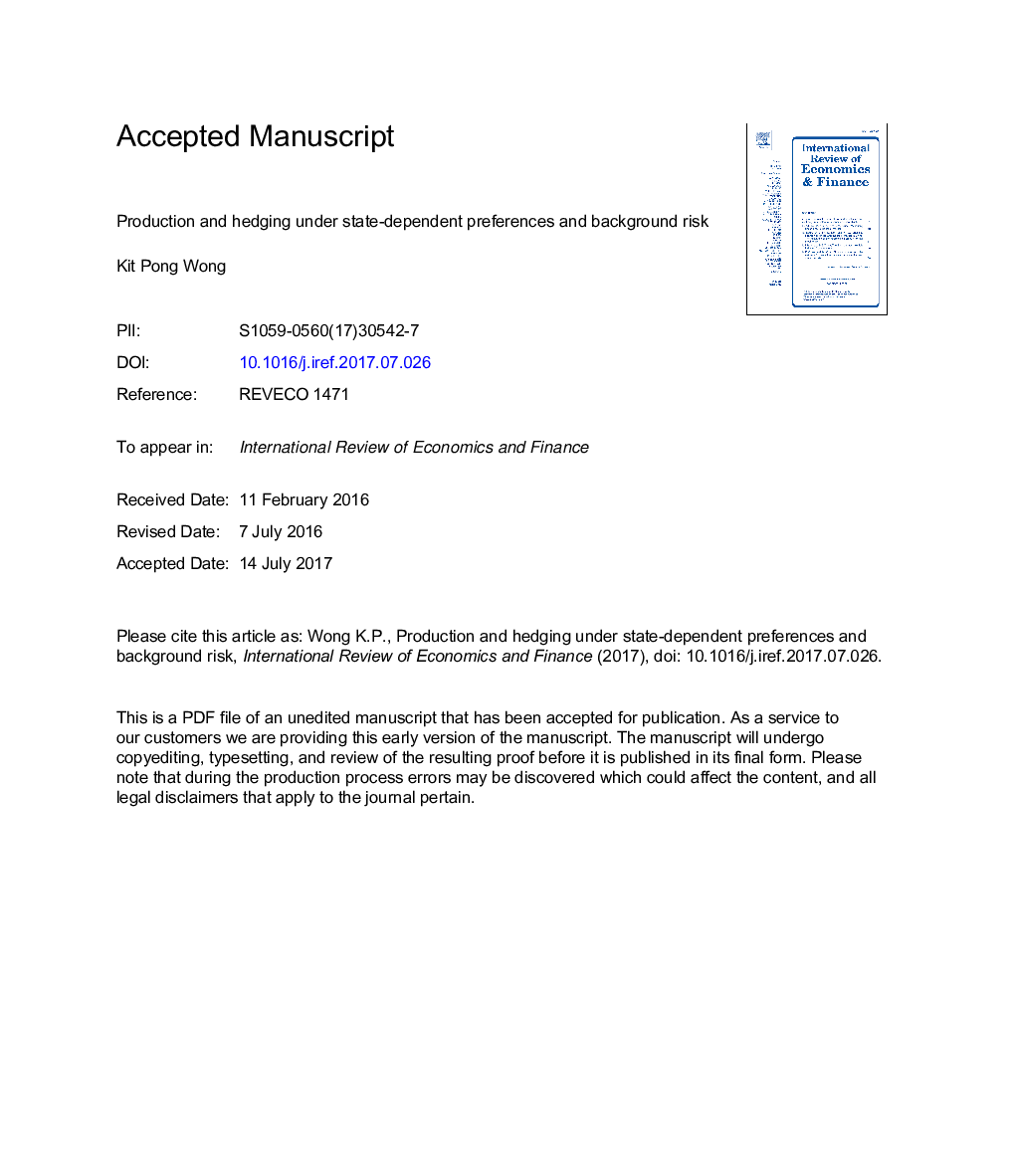| Article ID | Journal | Published Year | Pages | File Type |
|---|---|---|---|---|
| 5083047 | International Review of Economics & Finance | 2017 | 21 Pages |
Abstract
This paper examines the behavior of the competitive firm that possesses state-dependent preferences and faces state-dependent price and background risk. While the background risk is neither hedgeable nor insurable, the firm has access to fairly priced futures and option contracts to hedge against the price risk. We show that the separation theorem holds in that the firm's optimal output level depends neither on the risk attitude of the firm nor on the incident to the underlying uncertainty. However, hedging does not always enhance production. We derive necessary and sufficient conditions under which the full-hedging theorem holds and thus options are not used. When these conditions are violated, we show that the firm optimally uses options to better cope with the complicated state-dependence structure between risk and preferences, thereby rendering options a hedging role over and above that of futures.
Related Topics
Social Sciences and Humanities
Economics, Econometrics and Finance
Economics and Econometrics
Authors
Kit Pong Wong,
